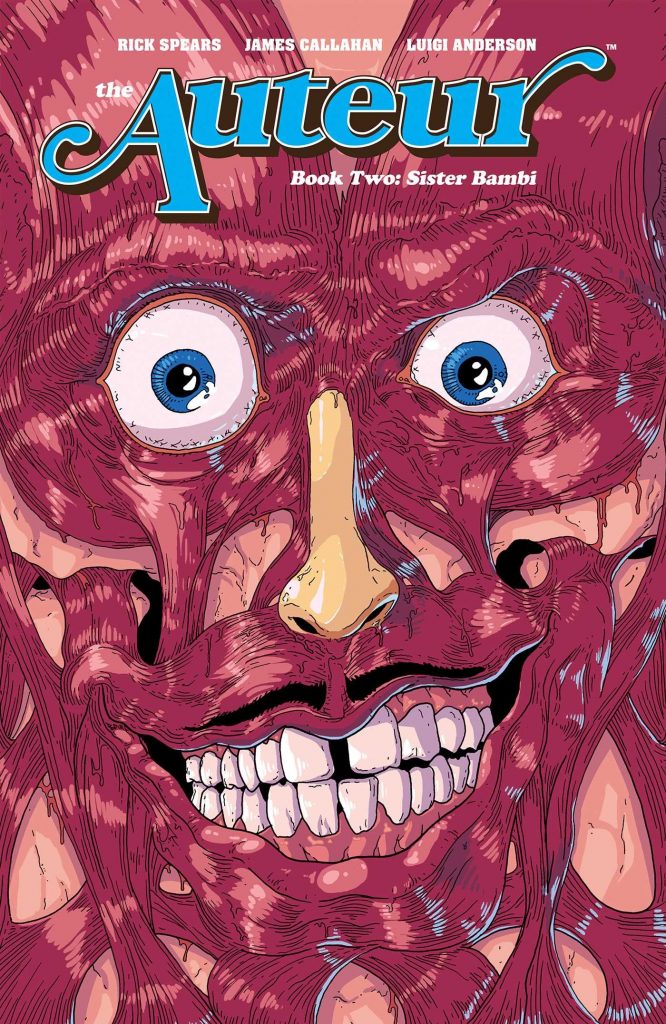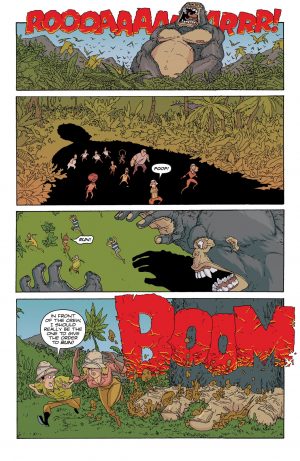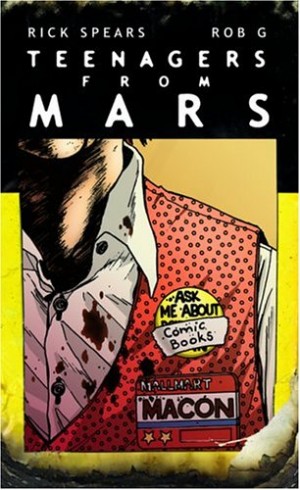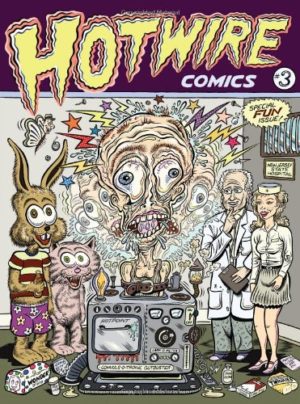Review by Frank Plowright
Given the testament to excess that was Presidents Day, where could Rick Spears and James Callahan take film producer Nathan T. Rex beyond that? Considering he’s detonated all his bridges in Hollywood, who would ever give him money to make another movie? Well, there are these shadowy old men with German accents in South America who feel that National Socialism has been given a bad name for too long, and a movie with an Aryan Nazi hero is just what’s needed to begin the rehabilitation.
We already know that there are no depths to which Nathan won’t sink to get his movie made, but since Presidents Day there’s a secondary force tugging at him. His pounding desire for Coconut, who he’s promised the lead role in his next film. Except starring roles for African Americans aren’t really on the Nazi agenda.
Callahan may have problems with perspective and anatomy, but compensates with an amazing imagination, to which Luigi Anderson’s colours add a hallucinogenic vividness. Visual eccentricities abound, but they’re part of the joy. He’s considerably more disciplined with the storytelling this time, so has reached a sort of nirvana level of clarity still allowing visually stunning flights of fantasy, generally in vivid colour. He’s also good with the eccentric visual asides.
While we’re on the subject of eccentricity, Spears supplies two ending chapters, run concurrently, page by page. The visual version is wordless, a trippy journey through Nathan’s head as his younger self battles with Nathan as he is now. The accompaniment is a typed script telling a completely different, but equally wacky story starting at the premiere of the now completed Sister Bambi movie. The innovation is interesting at first, but wears thin as the madcap predominates.
There’s a large caveat hanging over any enjoyment of The Auteur, and it’s that Spears is deliberately pushing every bad taste button designed to cause offence. Every issue is trivialised and reductive, something Spears has one of his more sympathetic characters comment on, and there’s no attempt to mitigate. The manic absurdism also wears thin. Small doses are fine, but the lack of anything other than surface caricature means The Auteur limits its appeal.





